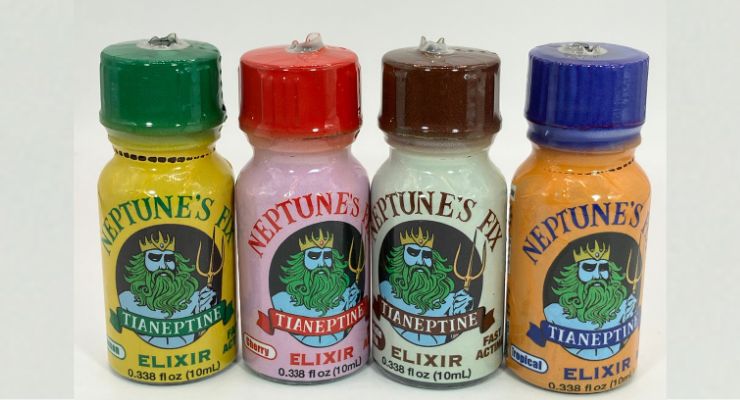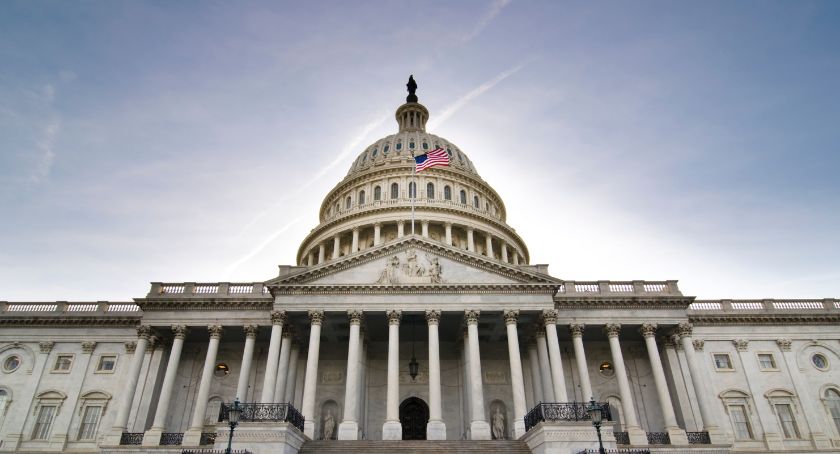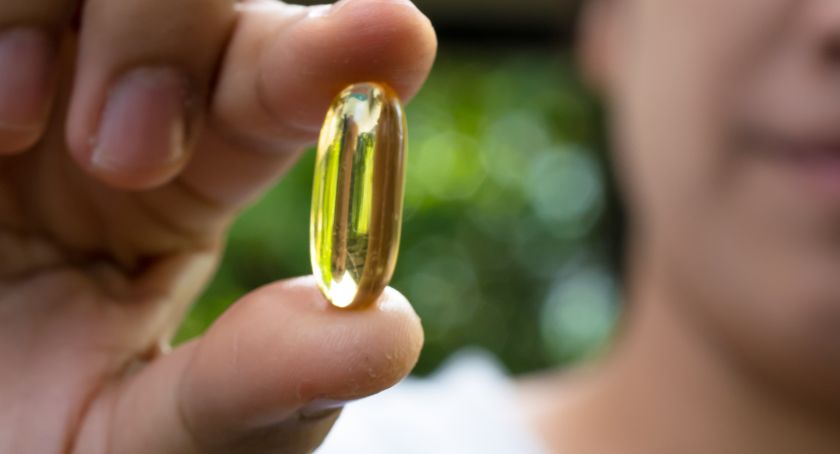Market Updates, Regulations
Bill Seeks Stronger Prohibitions on Tianeptine and Other Unlawful Ingredients
A new House bill would amend the Food, Drug, and Cosmetic Act to grant FDA more authority against products that don't meet the definition of dietary supplement.

By: Mike Montemarano

A new bill introduced by Rep. Frank Pallone, Jr. (D-NJ), dubbed the ‘Prohibiting Tianeptine and Other Dangerous Substances Act,’ seeks to expand the U.S. Food and Drug Administration (FDA)’s authority to prohibit people from marketing products as dietary supplements if they contain ingredients which don’t meet the definition of dietary supplements.
In a statement, Pallone’s staff reported that the bill is designed to halt the marketing of tianeptine, an unapproved drug, as a dietary supplement. Ingestion of the drug has led to an increase in calls to poison control centers and emergency room visits nationwide. America’s Poison Control Centers reports that 391 such adverse events were reported last year, 27 of which were in New Jersey.
“It’s clear that these harmful tianeptine-containing products pose a serious threat to consumers and are jeopardizing the health of our communities, particularly our kids. These dangerous products do not belong on store shelves, which is why I’m introducing a bill today to empower FDA to prohibit the marketing of ‘gas station heroin’ to protect consumers,” said Pallone in a statement.
U.S. Senate Majority Whip Dick Durbin (D-IL) will introduce a companion piece of legislation in the Senate, per Pallone’s statement.
“Americans put their trust and faith in a dietary supplement to improve their health and well-being,” Durbin said. “But some unscrupulous companies have abused that trust and marketed illegal—and dangerous—ingredients in some of these products, such as tianeptine. As a result, some consumers have been sickened and even died. Consumers deserve to know that these products are safe. In the face of this mounting public health threat, we must pass legislation to provide FDA with the authorities it needs to rid the market of tianeptine and other dangerous ingredients.”
Much Broader than One Ingredient
The bill’s text seeks to amend the Federal Food, Drug, and Cosmetic Act (FDCA), by adding additional prohibitions that could extend to many ingredients beyond just tianeptine.
The bill would ban “the introduction or delivery for introduction into interstate commerce of any product marketed as a dietary supplement that does not meet the definition of a dietary supplement under section 201.”
It would further ban “the introduction or delivery for introduction into interstate commerce of a dietary supplement that has been prepared, packed, or held using the assistance of, or at the direction of, a person debarred under section 306,” which covers anyone convicted of a felony related to the importation of food into the U.S.
FDA would also be granted new seizure authority against products marketed as dietary supplements containing ingredients that don’t meet such product definitions, according to the bill.
At face value, it appears that ingredients like CBD, NMN, or other ingredients FDA places in a state of regulatory limbo through determinations made in warning letters are also implicated in the new prohibitions.
Why Not Schedule Tianeptine as a Narcotic?
The Natural Products Association (NPA) announced its opposition to the bill, calling on Congress to instead ask the U.S. Drug Enforcement Adminitration (DEA) to schedule tianeptine as a narcotic.
“Tianeptine is already illegal, and as it has been referred to as contributing to the opioid epidemic by the Department of Justice, why is it not being scheduled to appropriately stop it and protect public health? Why is there not outrage from the bill’s sponsors Congressman Pallone and Senator Durbin, on the inaction from those charged with the safety of America’s food and drugs when Tianeptine was first publicly identified as a problem by FDA in 2018? What’s in this proposal is a re-use of a part of the failed mandatory product listing from last Congress, and doesn’t specifically address tianeptine, as the goal of this only appears to be restriction of legitimate and safe ingredients like NAC, NMN, CBD and many other ingredients without any scientific basis,” said Daniel Fabricant, PhD, president and CEO of NPA.
“As the NPA has stated time and time again, the FDA has the tools necessary to go after illegal products like tianeptine,” Fabricant continued. “Proposals like this make one think that the agency is genetically predisposed against basic law enforcement and would much rather spend taxpayer-funded time and resources pursuing overreaching authorities that muddy the waters for legitimate dietary ingredients … if enacted, the unintended consequences would threaten innovation and limit access to safe ingredients spanning probiotics, botanicals, amino acids, vitamins, and more.
According to a recent FDA warning, tianeptine hasn’t been approved for any medical use, and its toxicity and withdrawals can mimic that of opioids. It has been sold at gas stations, convenience stores, and several other locations, under “Neptune’s Fix,” and several other brand names, the agency reported.
A Backdoor for MPL?
Is the present bill a way for supporters of mandatory product listing (MPL) to introduce it in a piecemeal manner?
Fabricant and Kyle Turk, director of government affairs at NPA, noted that the language of the present bill mirrors the final provisions of the MPL bill that were excluded from an FY 2023 omnibus spending bill. The authorities the present bill grants FDA are part-and-parcel to how the agency would enforce MPL.
“What we suspect might happen is that they’ll break the MPL bill into individual components,” Turk said. “This creates a new prohibited act which gives FDA new, broad regulatory authority over how supplements are regulated, and, specifically, marketed.”
Ironically, in the National Institutes of Health (NIH)’s Dietary Supplement Label Database, to which over 178,000 product labels have been submitted on a voluntary basis, there are, at press time, four tianeptine-containing products labeled as “on market.” The most recent tianeptine product label was voluntarily submitted to the database in February.
“FDA has said, time and time again, that it can’t regulate what it can’t see,” said Turk. “There have been multiple warning letters sent on tianeptine products, and, I don’t know this to be fact, but I would suspect that FDA hasn’t followed up on those warning letters.”
“The follow-up simply isn’t there,” said Fabricant. “Why can’t they (FDA) send letters to the groups that submitted their products in the NIH database asking where this compound is coming from, or why these manufacturers don’t have registered food facilities?”
Fabricant said that the present bill conflates challenges related to dangerous drugs like tianeptine with “the fact that FDA isn’t doing its job (regulating dietary supplements). I have no members that sell tianeptine, I never have, and I never will. There is no tianeptine manufacturer’s association, just like there’s no fentanyl manufacturer’s association – it’s criminal activity, being done by drug traffickers from all parts of the world … So why am I talking about tianeptine? Why doesn’t the bill even mention tianeptine? Congress could pass emergency legislation giving the DEA three months to schedule it.”
Fabricant and Turk called on the industry to take a stand more concertedly against bills that, above all else, are designed to give stronger deference to FDA’s opinions on ingredients like CBD, NMN, NAC, and others caught in the ‘race-to-market’ debate.
“It’s hard to get a hold of other folks who want to be able to sell ingredients like CBD, NMN, or NAC without unnecessary restrictions. We acted swiftly on NAC, and we still got a guidance document saying that NAC doesn’t meet the definition of dietary supplements under section 201, so if this bill became law tomorrow, that’s the end of NAC,” Fabricant said. “This isn’t based on safety … their (FDA’s) power to interpret the law how they like becomes absolute.”
“We beat this thing last Congress with overwhelming grassroots support. The industry needs to ask itself what they want, because right now it seems like they’re fine with this being reintroduced,” Fabicant said. “We got a good turnout for our fly-in, but there are thousands of people can make it to every trade show, but can’t show up in D.C. to say that their products deserve to exist on the market. Trade associations need to be known about on the hill, and they need to be known for their ability to get things done.”




















